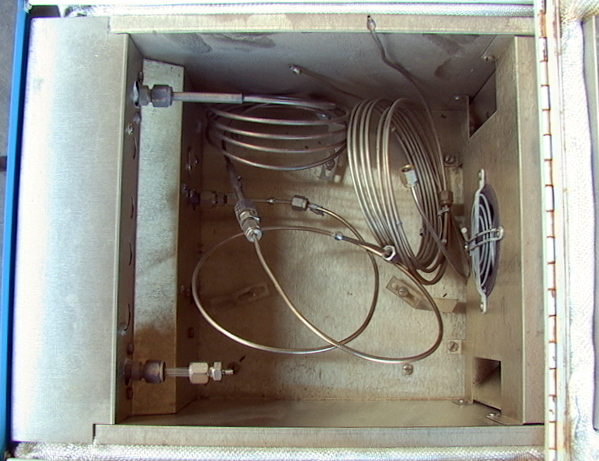Tips for buying Gas Liquid Chromatograph

GOW-MAC Series 580 TCD Isothermal Gas Chromatograph; with Thermal Conductivity Detector, Manuals, Chrome Perfect and labVIEW Software, Misc. Parts Laboratory Equipment & Inventory Auction Ends from. The Series 590 Gas Chromatograph features our patented Discharge Ionization Detector (DID) which permits analysis of trace gas impurities in the part per billion (ppb) range. Manufacturers of UHP specialty, electronic and bulk industrial gases are successfully using the Series 590 DID GC to analyze gases for ppb level of contamination. Find out all of the information about the GOW-MAC Instrument Co. Product: gas chromatograph / laboratory / TCD / DID Series 200DID GC. Contact a supplier or the parent company directly to get a quote or to find out a price or your closest point of sale.
Gas Chromatograph Price
- The needs of a particular facility will determine the features of a gas chromatography system; for most uses, however, certain minimum requirements are common.
- All systems must include capillary columns. Based on the intended use, other columns may be required.
- Units must come with at least one detector, but multiple detectors certain applications are preferred. If there's a risk of destruction to the sample, multiple detectors should be avoided.
- The chromatography system should include some data management features. To produce hard copy of test results, a printer or an interface to a printer is necessary.
- To present obtained results in a more useful format without requiring manual interpretation, data interpretation software is required.
- The range of prices for these units is wide, depending on configuration, options, and data management features. Integrators have a wide range of capabilities and price ranges; they are often compatible with different manufacturers' GCs.
- Buyers should consider the costs for supplies and column replacement before purchasing the equipment.
- Some suppliers sell reagents that are not their own. Buyers must know which reagent types are compatible with their units and where to purchase them.
- For purchasing reagents in bulk, some suppliers may give significant discounts.
- Tests that need little or no training are categorized as waived tests. They do not need elaborate QC, and are less likely to produce inaccurate results. An example would be the non-automated dipstick urinalysis.
- Tests in the moderate complexity category include most clinical laboratory tests, including automated urine, blood, and chemistry analyses. In this group, tests and analyzers require a limited amount of sample and reagent preparation, as well as limited operator intervention during the analytical process.
- More specific testing belongs to the high complexity classification. Tests in this group require extensive training. This category holds procedures with a high degree of operator preparation, calibration, intervention, and analysis, such as clinical cytogenics and histopathology applications.